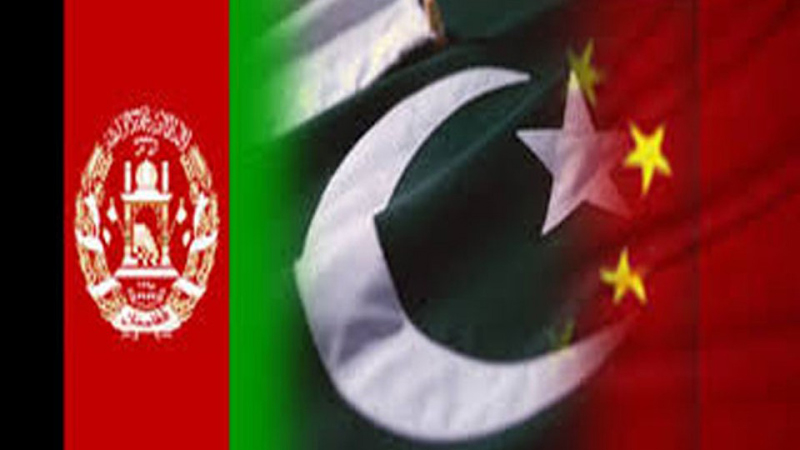
Unfazed by the Trumpian tariff wars and determined to create its own relevance to a geo-politically complex landscape, China is on the move to realise its stated goal of ‘shared development through connectivity’ under the Belt and Road Initiative (BRI).
Western skepticism on some elements of the BRI notwithstanding, the Chinese leadership is slowly but carefully trying to diplomatically wade through a complex regional neighbourhood, and at the same time offer its facilitating arm to mitigate conflicts through multilateral engagement.
The first-ever unofficial Afghan-Pakistan-China Trilateral Counter-Terrorism dialogue recently held in Beijing illustrates this ambition. Chen Zhimin, the president of the China Association of Friendship (CAF), who hosted the meeting, told the Pakistani and Afghan friends, also represented by two senior officials of the Ministry of Foreign Affairs, that cross-border mobility of terrorist networks and their technical capabilities represented a major threat and required to be tackled with an integrated regional approach.
In an indirect advice to Pakistan, Chinese officials, while acknowledging significant success against terrorist groups such as TTP and its Jamaatul Ahrar faction, also begrudged the fact that the issue of ideological extremism is not being adequately addressed in the country. They also proposed joint research ventures by think tanks to ‘generate further understanding of the issue surrounding extremist and terrorist groups’.
Mr. Zhimin, the CAF president, reiterated Beijing’s position on Afghanistan’s peace process and its significance for counter-terrorism.
“Peace dialogue should be led by Afghans themselves in an effort to remove internal differences of opinion. We will stand by in these efforts,” he said, and also touched on another critical issue at the heart of multilateral disagreements: who is a terrorist. “There is a need for clearly defining and identifying terrorist groups in order to develop collective and effective responses to them,” he said.
Herewith, the Chinese official, who enjoys the status of a minister as part of the ministry of public security, appeared to be addressing both Afghan and Pakistani officials in urging them to generate consensus on the nature of common threats to them and to the region.
Other Chinese officials and intellectuals present on the occasion also concurred on the need to investigate whether ISIS/Daesh sought political power, or was it just an instrument for instability. A clear categorisation is required to understand whether these are religious/freedom fighters, or just different faces of terrorism. This matter has thus far also divided the US, and its regional competitors, China and Russia, as well as Iran and Pakistan.
Russian ministers have vociferously hinted at the CIA being the supporter of Daesh in Afghanistan. China has indirectly endorsed this view by tagging along Moscow at international platforms such as SCO and BRICS.
The United States keeps rubbishing this argument; as recently as August 8, General Joseph Votel, the commander of the US CENTCOM, told reporters that “ISIS-K is not reconcilable” and must be eradicated.
“I want to highlight that the fight to eradicate ISIS-K being conducted by the United States and our Afghan partners continues. We’ve killed numerous ISIS-K fighters this year, and … we continued operations against other terrorist organisations like al-Qaeda during the recent Eid cease-fire between the government of Afghanistan and the Taliban,” Votel recalled.
The context for Votel’s statement was the recent “evacuation/ surrender” of at least 150 Daesh fighters in the northern Jowzjan province, where the Taliban had forced them out of their strongholds.
President Ghani and CEO Dr. Abdullah have been talking of an amnesty for them but the US and human rights defenders have been demanding to try these terrorist for possible war crimes.
Moscow, Beijing, Tehran and Pakistan may take Votel’s reassurance on Daesh with a big pinch of salt but it is equally important for these countries to develop consensus on the link between violence in Afghanistan and counter-terrorism efforts. Because of its concerns about Uighur Chinese terrorist outfit ETIM, China is convinced that it will be difficult to break financing and recruitment networks of groups using other states’ territories to plan and launch attacks, or to disrupt such groups’ links with criminal syndicates, without improved and coordinated intelligence. For this, officials have conveyed several times that China is willing to provide whatever support it can, even against underground financial networks that feed terrorist groups.
It seems China is quietly, but diligently, pursuing an engagement with three major neighbours – Pakistan, India and Afghanistan – on the issue of terrorism, probably rightly assuming that without getting these three countries on board, peace in Afghanistan and a victory over instruments of terrorism will remain elusive. And an unstable, terror-hit Afghanistan will also be harmful to the BRI.
Published in Daily Times, August 13th 2018.